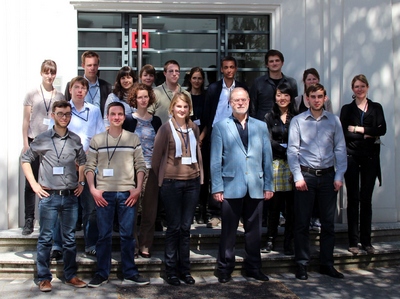
The students’ presentations showed that decision makers in politics, business and society have the toolkit at hand in order to make the necessary adjustments to cushion the impact of demographic change. Among the potential preventive and remedial actions discussed by the young economists were the expansion of weekly and lifetime working hours, various ways to raise female labor market participation, and options to promote and control skilled labor immigration based on economic needs.
A hotly debated topic was how to extend people’s working lives and how to create a work environment that meets the needs of older workers. While raising female employment was found to have an enormous potential, it was emphasized that actively organized immigration of foreign specialists will remain necessary at the same time. The option to expand weekly working hours, which has so far been neglected in the public debate, was discussed as well. IZA also provided the students with insights into the methodology applied by IZA researchers to simulate future trends in labor supply and demand.
Apart from economic considerations, the students also looked into the political implications of an aging society, which is characterized by a shift of power from the young to the old. At the end of the successful compact course, the international dimension of demographic change was discussed. Since a sustainable strategy to deal with skilled labor shortages must also take into account the interests of skilled migrants’ home countries, it requires cooperation on a global scale.